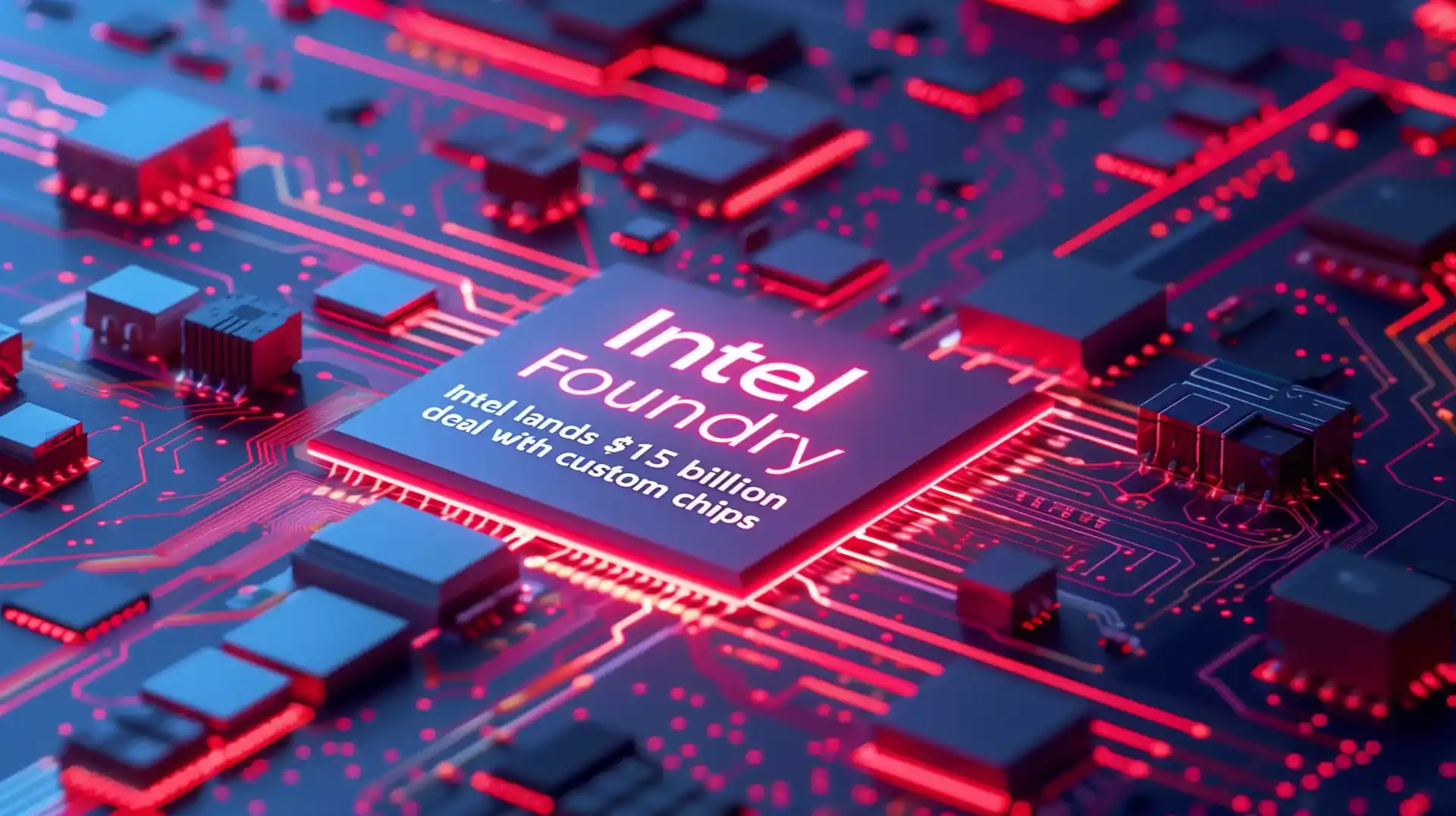Table of Contents
Microsoft has announced a massive deal with Intel Foundry, the chipmaking division of Intel, to produce custom chips for its use. The deal, which Intel says is worth more than $15 billion, is a major win for Intel Foundry, which is trying to regain its leadership in the semiconductor industry.
What are the custom chips for?
Neither Microsoft nor Intel revealed the exact details of what the custom chips will be used for, but according to Bloomberg, Microsoft has been working on its designs for processors and artificial intelligence (AI) accelerators. These chips could power Microsoft’s cloud services, such as Azure and Office 365, as well as its devices, such as Surface and Xbox.
In a press release, Satya Nadella, the CEO of Microsoft, stated that the agreement is a significant platform change that will completely revolutionize productivity for individuals, organizations, and the entire industry.
How will Intel Foundry make the custom chips?
The custom chips will be made using Intel’s 18A process, which is expected to be ready by 2025. The 18A process is based on Intel’s 7-nanometer technology, which has been delayed several times due to technical challenges. Intel hopes that the 18A process will offer a significant improvement in performance and power efficiency over its current 10-nanometer process.
Intel Foundry is led by Pat Gelsinger, who returned to Intel as CEO earlier this year. Gelsinger has made Intel Foundry a key part of his strategy to revive Intel’s fortunes, as the company has been losing ground to rivals such as TSMC, Samsung, and AMD. Intel Foundry aims to offer its chipmaking services to a wide range of customers, including competitors, in various markets, such as automotive, 5G, and edge computing.
What does the deal mean for Intel and Microsoft?

The deal with Microsoft is a huge boost for Intel Foundry, as it shows that it can attract and satisfy a major customer in the tech industry. Microsoft is one of the largest buyers of chips in the world, and its endorsement of Intel Foundry could encourage other companies to consider Intel as a chip supplier. The deal could also help Intel Foundry compete with TSMC, which has been dominating the foundry market with its advanced technology and strong partnerships with companies like Apple, Qualcomm, and Nvidia.
For Microsoft, the deal with Intel Foundry could give it more control and flexibility over its chip supply and design. Microsoft has been investing heavily in its chip capabilities, as it seeks to reduce its dependence on external vendors and differentiate its products and services. By working with Intel Foundry, Microsoft could leverage Intel’s expertise and resources to create custom chips that meet its specific needs and goals. The deal could also strengthen the relationship between Microsoft and Intel, which have been longtime allies in the PC market.
The deal between Microsoft and Intel Foundry is a sign of the growing importance and complexity of the chip industry, as more companies seek to create and use their own chips for various purposes. The deal could also have implications for the global chip supply chain, which has been facing shortages and disruptions due to the pandemic, trade tensions, and surging demand. The deal could help increase the chip production capacity and diversity in the US, where both Microsoft and Intel are based.
More details about Intel’s 18A and 14A technologies
Intel’s 18A technology is the next generation of its 7-nanometer process, which was originally scheduled to debut in 2021 but was delayed to 2023 due to yield issues. Intel claims that the 18A technology will feature its first implementation of gate-all-around (GAA) transistors, also known as RibbonFETs, which are expected to offer better performance and power efficiency than the current FinFET transistors.
The 18A technology will also introduce Intel’s PowerVia technology, which is a backside power delivery network that eliminates the need for power routing on the front side of the chip, reducing parasitic capacitance and improving signal integrity.
Intel’s 14A technology is the successor of its 18A technology, which is planned to be ready by 2026. Intel has not revealed many details about the 14A technology, except that it will use an enhanced version of its GAA transistors and PowerVia technology, as well as other innovations to improve chip performance, density, and scalability.
Intel says that the 14A technology will enable it to regain its leadership in chip manufacturing, surpassing TSMC’s 3-nanometer and 2-nanometer processes, which are expected to be in production by 2024 and 2026, respectively.